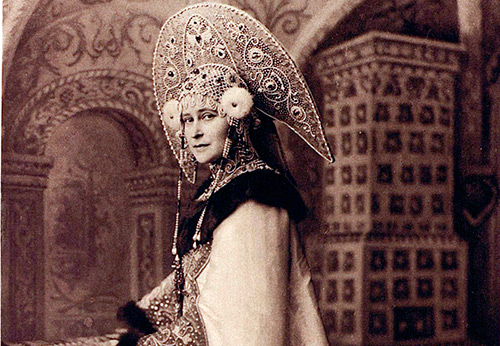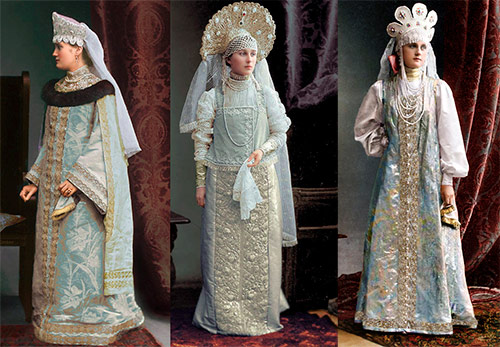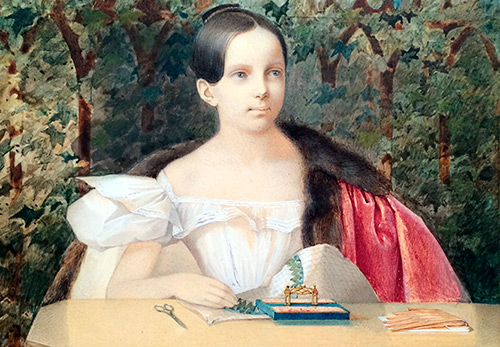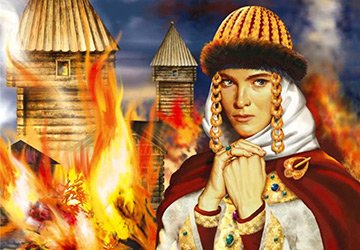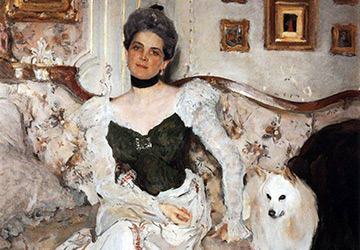BLOG
Princess Elizabeth Feodorovna
"... And I love your soul more than your face ..." - A. Pushkin
"Beauty will save the world ..." - now these words are often pronounced. But what beauty the famous writer-philosopher F.M. Dostoevsky? The beauty of the body and face cannot be called beauty without the beauty of the soul. If the soul is ugly, then everything else takes on the same ugly features. And if this is immediately imperceptible, then after a while the understanding comes that there is simply no beauty without a soul.
Over time, many moral qualities were destroyed and lost. And only love for one's neighbor can bring them back.
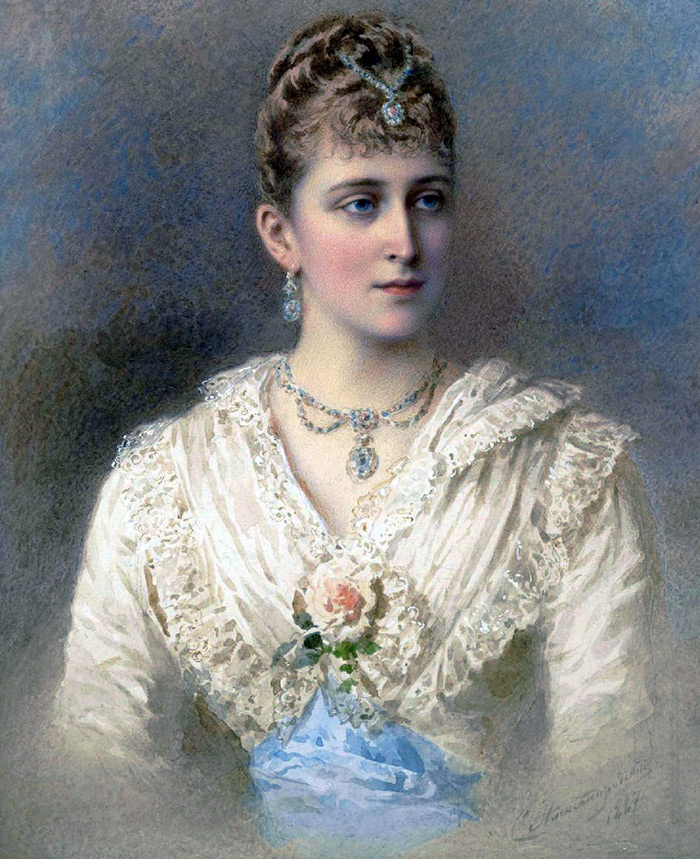
Grand Duchess Elisaveta Feodorovna and Alexandra Feodorovna
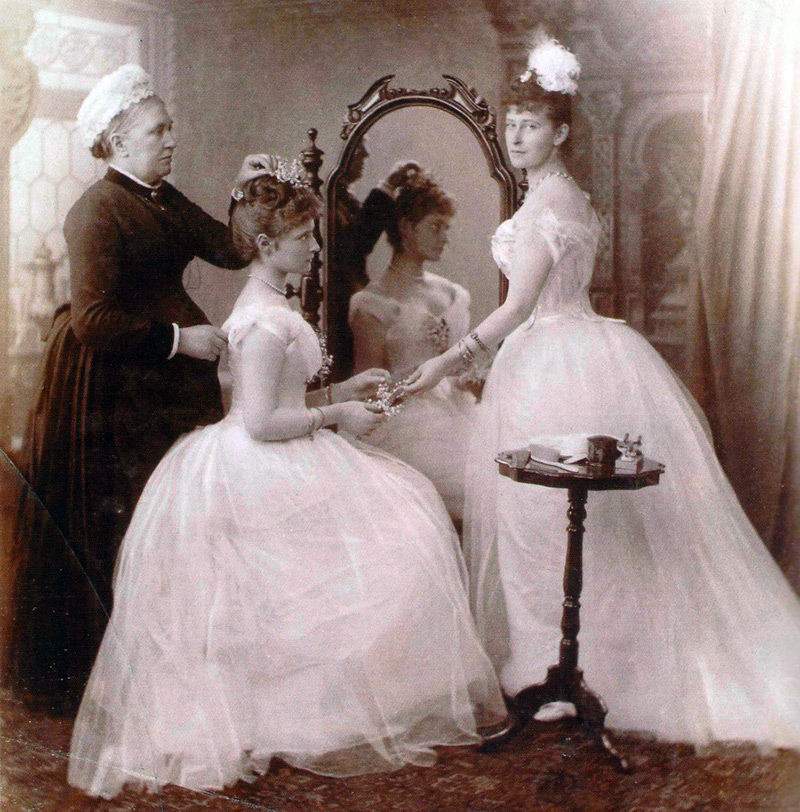
Now the memory of those who did good deeds, showed mercy or extended a helping hand to the disadvantaged is returning to Russia. Charitable activities in Russia were common for wealthy people; it was even the rule, not the exception. Rich people knew that the work of mercy is the rule of the Christian's life, indicated among all others in the Gospel.
Until 1917, a significant part of hospitals, hospitals and other hospitals and even cultural and educational institutions were built with the money of donors and patrons. For example, by the beginning of the twentieth century, many hospitals were built, on which memorial plaques were hung with the names of the benefactors merchants Morozov, Kashchenko, the publisher Soldatenkov, and Prince Shcherbatov.
Orphanages, widows' houses, almshouses, cheap or even free apartments, vocational schools were built with the money of the manufacturers Bakhrushins, Rakhmanovs, Solodovnikovs and other donors. The People's University in Moscow was built by the gold miner Shanyavsky.
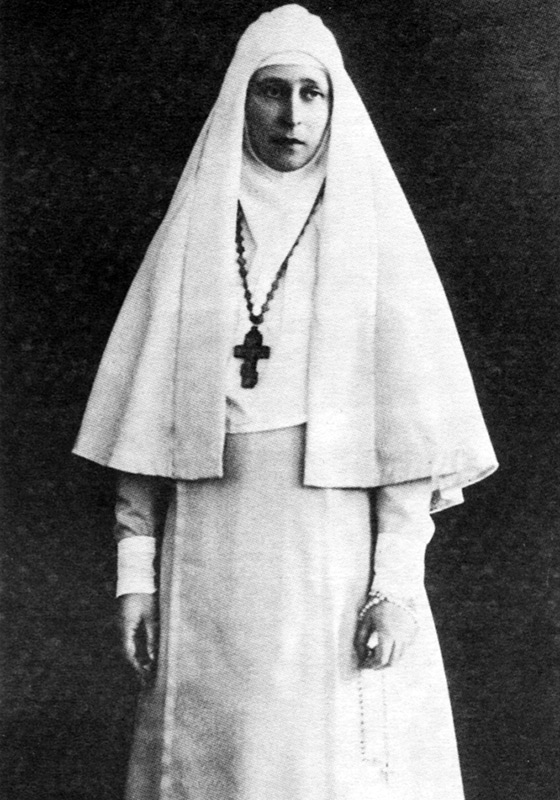
Among all the names today, in the days of the Bright Resurrection of Christ, I would like to recall the name of the founder of the Martha-Mariinsky monastery, Grand Duchess Elizabeth Feodorovna, the sister of the last Russian empress. She was the wife of the Moscow Governor-General, Grand Duke Sergei Alexandrovich, who was killed by Kaliayev in Moscow in 1905.
The future Grand Duchess married a member of the imperial family, converted to Orthodoxy and immediately began to engage in charitable activities, to which she was accustomed from an early age by her parents, who generously distributed income throughout their life.
As children, Elizaveta Fedorovna and her sisters went to hospitals every Saturday, visiting suffering people. Therefore, love for neighbors for the Grand Duchess was the main feature of her character, seemingly soft, but in fact strong and noble. Many contemporaries spoke of her in the same way: "rare beauty, wonderful mind, ... angelic patience, noble heart."
During the Russian-Japanese war, Elizaveta Fedorovna headed the patriotic movement: she organized sewing workshops for the needs of the army, which included women of all classes, equipped several ambulance trains at her own expense, visited hospitals every day, took care of the widows and orphans of the dead.
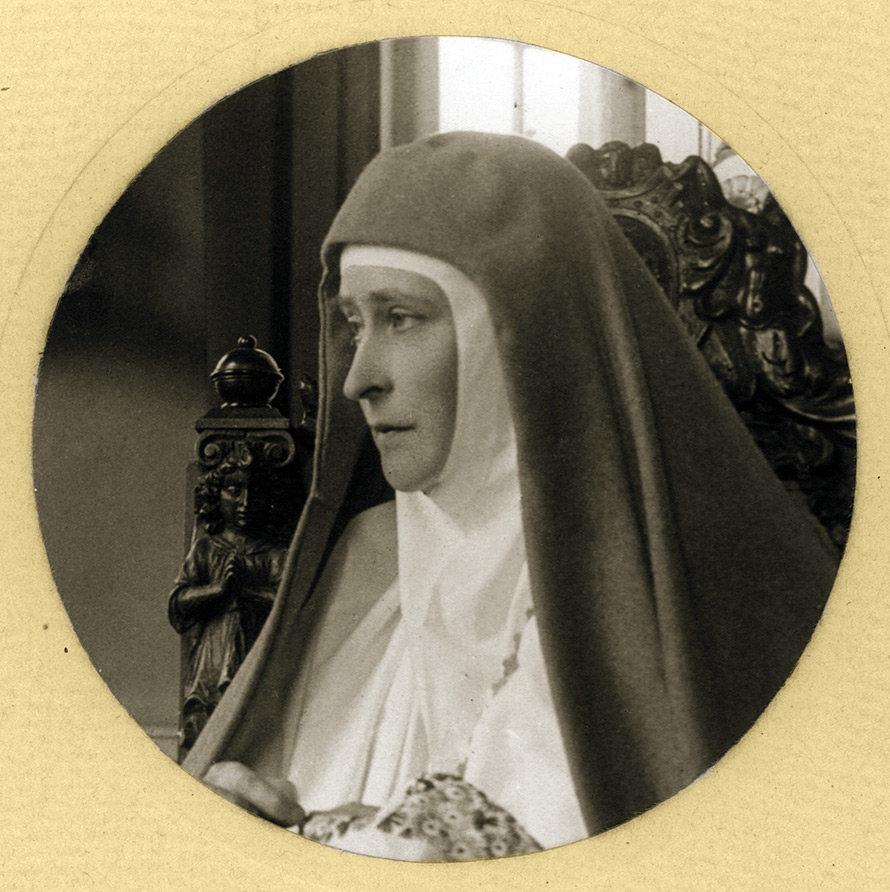
When Grand Duke Sergei Alexandrovich died, she completely devoted herself to charity work. Elizaveta Fyodorovna was a deeply religious person, and this is what explained many of her actions. For example, after the death of her husband, she turned to the king for a pardon for the murderer. After a long mourning, she dismissed her court and decided to completely retire from the world, to devote her life to serving God and her neighbors, those in need and suffering.
She divided her entire fortune into three parts: to the treasury, husband's relatives and for charitable purposes. She left nothing for herself, not even a wedding ring. On Bolshaya Ordynka, the Grand Duchess acquired a small estate with four houses and a garden.A hospital with a house church, a pharmacy, an outpatient clinic, a girls' orphanage and other household facilities were located here. In addition, there was a library, a dining room and a hostel for sisters.
In 1910, 17 girls of different classes became the first sisters of the new monastery. In 1911, when, according to the project of A.V. Shchusev, the Cathedral of the Intercession Church was built, this abode of goodness and mercy took on a complete architectural appearance, they called it Martha-Mariinsky.
The Gospel speaks of two sisters Martha and Mary, who combined two main paths in life: the spiritual path - serving God and the path of mercy - serving others. The sisters of the monastery shared any work equally. The best doctors worked in her hospital - specialists in their field.
Every week 34 doctors received the sick, and for free, they did not take money from the poor and for medicines, others received medicines at a large discount compared to other pharmacies in the city. On Sundays, classes were held at the monastery for the illiterate. The orphanage girls, in addition to literacy training, received medical training.
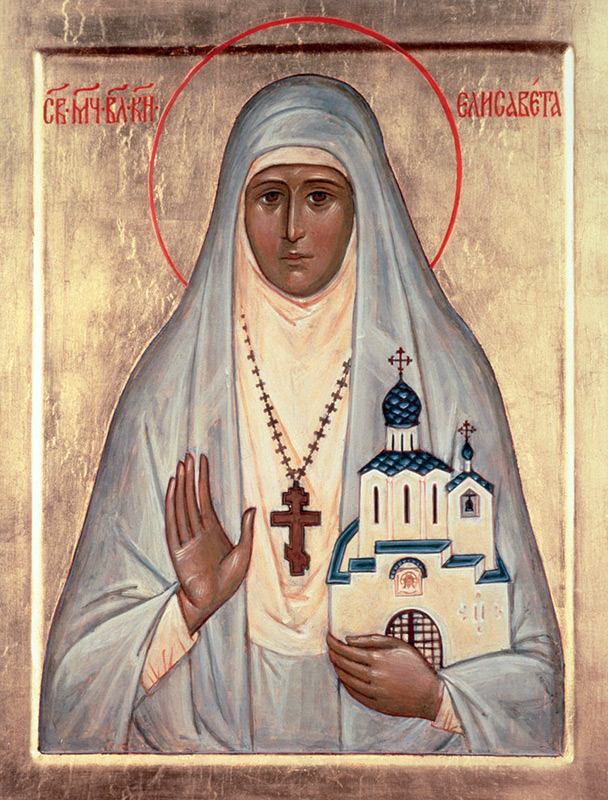
The personal life of Elizaveta Fedorovna was, one might say, harsh. She slept on a wooden bed without a mattress, observed a strict fast, and on other days her food consisted of vegetables and a small amount of milk. The Grand Duchess prayed for a long time at night, and during the day she constantly took care of her sisters, distributed assignments to everyone in her power, monitored the health of the sisters, and bypassed all hospital wards.
Elizaveta Fedorovna looked after the most seriously ill herself and even assisted during operations. In addition to work and cares in the monastery, the abbess visited and helped the poor in the localities. People learned from each other with what care and love they treated the sick and suffering here in the monastery, and they made requests for treatment, for a job, for looking after little children, and even with requests for help in finding a place to study.
The monastery received more than ten thousand petitions a year. And besides everything, help came from here, both money and clothing. But most importantly, the suffering and sick needed compassion, and they received it here.
And that was not all. Elizaveta Fyodorovna avoided the shelters of the "famous" Khitrov market, as she revered the soul of any person as immortal and honored the image of God in it. And those who inhabited this part of the city were far from divine. But the princess tried to touch the heart of everyone, mired in sins and vices, to touch the depths of the soul and turn it to repentance.
Sometimes these same people called themselves: "We are not people, how do you come to us!" Parents of little children living in this swamp, as M. Gorky once said - “At the bottom,” she persuaded to give their children to be raised in the monastery. The girls were brought up in an orphanage, and the boys were placed in a hostel.
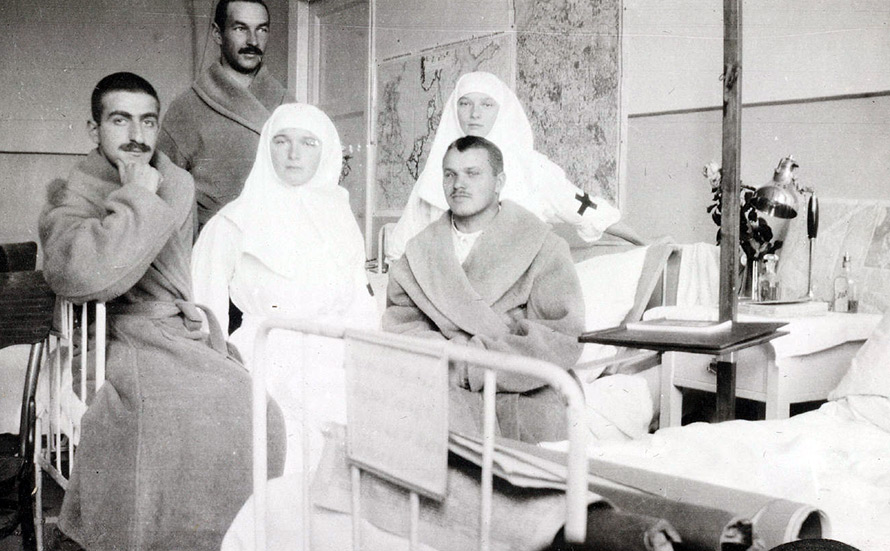
For the sisters of the monastery, neither glory nor reward was needed, all their activities were connected with the Gospel commandments - love for God and neighbor.
By 1914, there were already 97 sisters in the monastery. The war broke out, some of the sisters went to field hospitals, others worked in a hospital in Moscow.
1917 year. Chaos began in the country. More than once the German ambassador tried to see Elizaveta Fedorovna, offering her a trip to Germany. She did not accept him, but replied that she refused to leave Russia: “I have not done anything wrong to anyone. Be the will of the Lord. "
The year is 1918. The Chekists arrested several patients from the monastery, then took all the orphans. On the third day of Easter in April, Elizaveta Fedorovna was arrested, because all those who bore the name of the Romanovs were doomed to death, and her good deeds were not included in the calculation.
In the deep night of July 18, 1918, together with other members of the imperial family, Elizaveta Fedorovna was thrown into the mine of an old mine. Before the execution, according to the testimony of an "eyewitness", she was baptized all the time and prayed: "Lord, forgive them, they do not know what they are doing." And when, three months later, the bodies of the executed were removed, next to the princess they found the body of the victim with a bandaged wound. Thus, Grand Duchess Elizabeth Feodorovna passed away from earthly life, fulfilling the Gospel commandments until the last minute.
After the arrest of the abbess, the monastery, apparently thanks to Krupskaya, still existed for about seven years. Then the sisters of the monastery were deported to Central Asia, and the premises of the monastery were given over to various institutions, and a club was set up in the Pokrovsky Church itself.
The memory of the Grand Duchess will help us find the way for moral and spiritual rebirth.
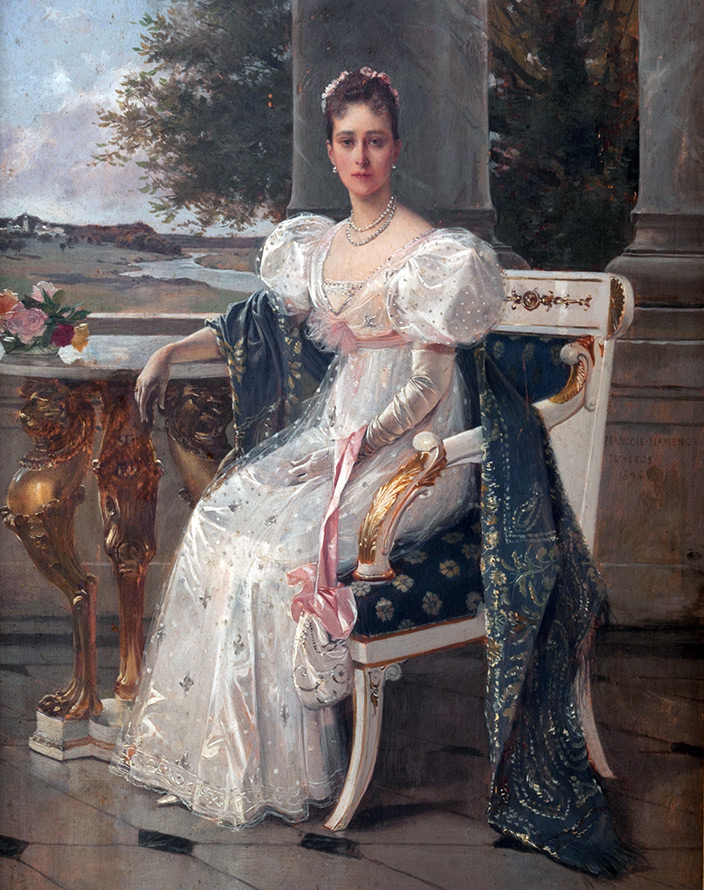
Grand Duchess Elizabeth Feodorovna
Comments and Reviews
Add a comment
Rating news
Shades of clothing that make women look younger
What shades of hair make women younger: rules and photos
Funny wedding dresses - photos and ideas
12 most expensive down jackets for the winter
How to look 25 at 40: tips from supermodels
Beautiful schoolgirls
Anti-aging haircuts and hairstyles for women
Fashionable skirts for autumn and winter
Fashionable women's trousers for the cold season
Fashionable and stylish sandals for summer 2024
Spring-summer 2024
 Fashionable dresses and tops with thin spaghetti straps
Fashionable dresses and tops with thin spaghetti straps
 Bandana tops: how to wear stylishly and beautifully
Bandana tops: how to wear stylishly and beautifully
 How to put together the perfect men's wardrobe for the summer
How to put together the perfect men's wardrobe for the summer
 Fashionable shorts for spring-summer 2024
Fashionable shorts for spring-summer 2024
 Fashionable skirts for spring-summer 2024: a guide to online shopping
Fashionable skirts for spring-summer 2024: a guide to online shopping
 The most fashionable dresses spring-summer 2024: styles and colors
The most fashionable dresses spring-summer 2024: styles and colors
 Fashionable total look 2024: ideas of images and trends
Fashionable total look 2024: ideas of images and trends
